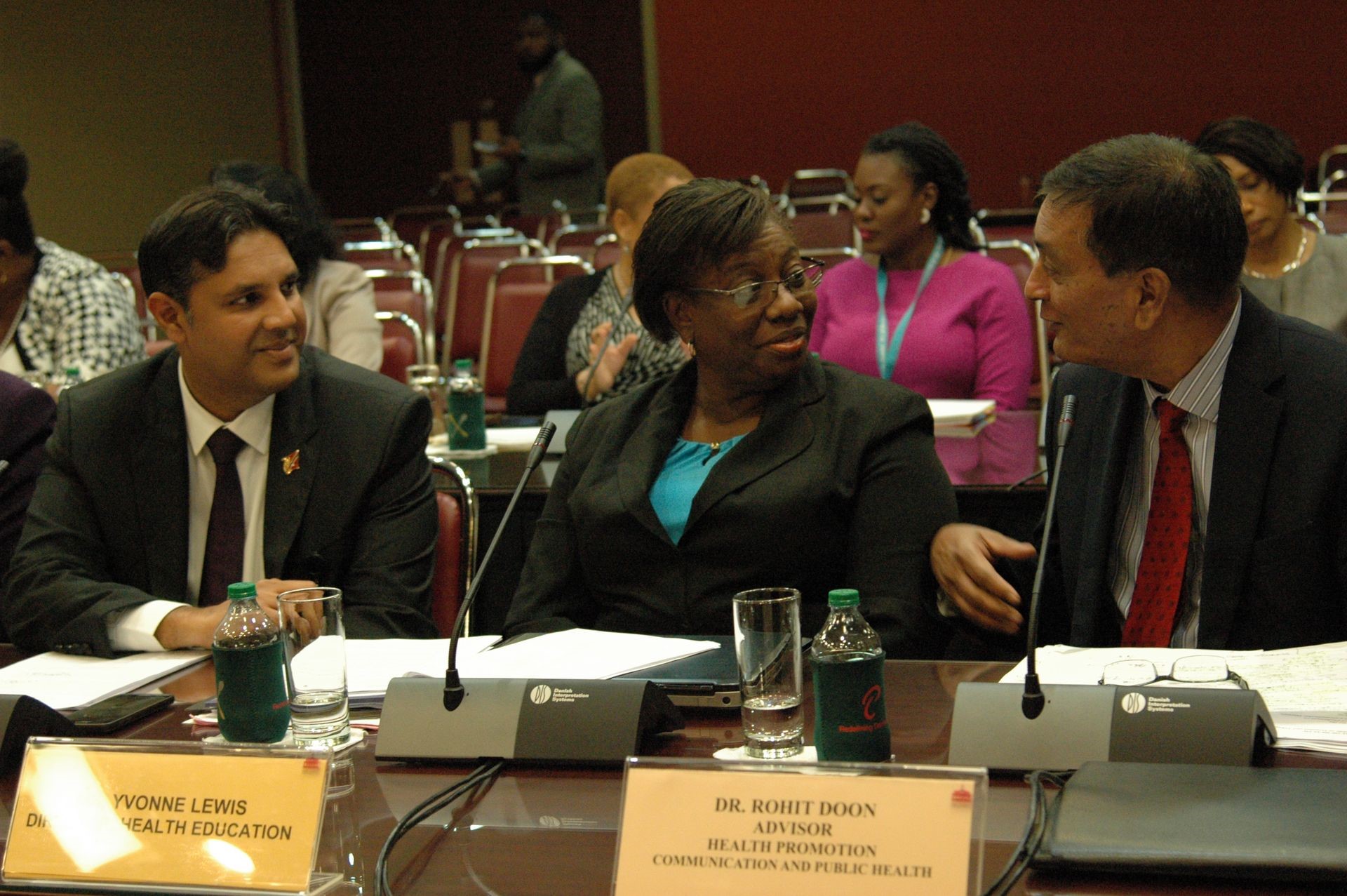(Trinidad Guardian) The Ministry of Health is moving to impose a “sugar tax” on beverage manufacturers in T&T.
The revelation was made at a Joint Select Committee (JSC) on Social Services and Public Administration chaired by Paul Richards, at the J Hamilton Room, Parliament Building, Port-of-Spain, yesterday.
The JSC meet officials from the Ministries of Health and Education to examine the level of child obesity and the State’s intervention to promote healthy lifestyles among children.
Richards noted that in developed countries there has been a strong lobby by parents and health groups against drinks laced with sugar, as he enquired what we have been doing to combat this.
In response, Dr Roshan Parasram, chief medical officer at the Health Ministry said: “We are looking into the sugar tax.”
He said the cost of eating unhealthy foods was far less and more convenient than consuming healthy foods.
Parasram noted that in some countries, including the United Kingdom, a sugar tax had been imposed.
“So, for instance, it would become more expensive to consume a sugar-sweetened drink than a natural drink.”
The proposed sugar tax mechanism, Parasram said, would look at the amount of sugar used in drinks.
“It is proportional to the amount of sugar in a beverage—added sugar. So soft drinks that would have a percentage of added sugar, the tax would be greater if you have a higher proportion of added sugar and your tax will be less in the opposite direction.”
Parasram said the higher the sugar content in a beverage, it would cost more to the manufacturer. He could not give a time frame when the tax will be imposed.
“We are working the actual figures to see what it will look like in Trinidad, in this model. So we have looked at the UK model in terms of the taxation schemes. We are looking at what level we can introduce it at.”
Parasram admitted that the implementation would be difficult because we have manufacturers in T&T. “So we have to do a lot of stakeholder analysis and consultations prior to going forward. Plus, it would have to go to Cabinet for consideration.”
Richards noted that they would receive a lot of “push back” on the move to implement the tax.
He said sugar and salt in meals have been very addictive, stating that we needed to change the mindset of society.
A decrease in physical activity and consumption of unhealthy foods have been contributing factors to obesity, the JSC was told.
Statistics provided by the Global School Health Survey undertaken a few years ago, Paul said, showed that T&T was leading in overweight children in the 13 to 15 age group with 33.3 per cent, trailing behind was Barbados with 31.9 per cent, followed by Jamaica with 25.6 per cent, and Guyana with 15.4 per cent.
T&T also scored the highest on childhood obesity in the same age bracket.
Member Christine Newallo-Hosein suggested to Dr Rohit Doon, adviser, health promotion, communications and public health, to look at an incentive for manufacturers to reduce the sugar level in drinks and snacks rather than impose another tax on the business community.

CEO of the National Schools Dietary Services Stacy Barran admitted that of the breakfast and lunches serves, students preferred “fast foods”, while there was a wastage of rice, paratha and cassava, with vegetables being the least consumed by children.
A message left yesterday for director of Solo Beverages Ltd Hayden Charles was not returned, while human resources coordinator of administration of soft drink manufacturer Caribbean Bottlers, Anna Theodore, said the company had to seek more information on the proposal before speaking.









